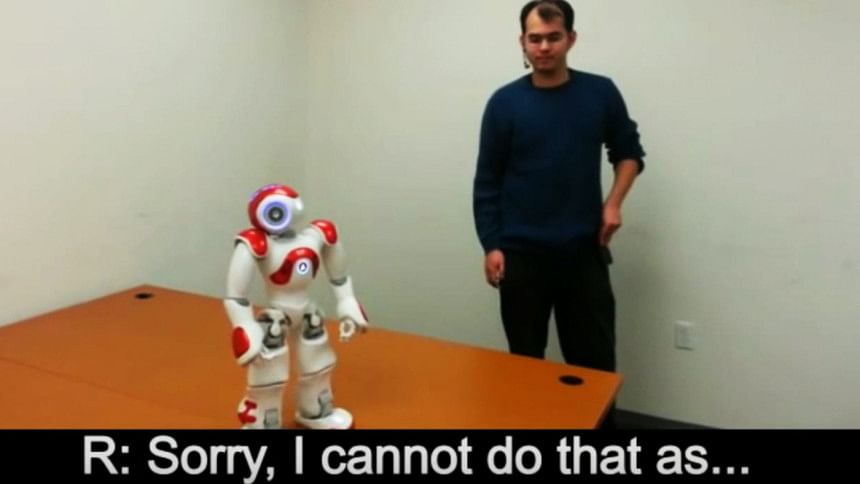'I'm sorry, I can't do that' -- Robots learning to say 'no'

Researchers at Tufts University said they are developing mechanisms for robots to perform a previously unheard-of task: saying "no" to orders from humans, reports United Press International (UPI).
Gordon Briggs and Matthias Scheutz of Tufts University's Human-Robot Interaction Lab presented research last week at the AI for Human-Robot Interaction symposium in Washington, DC, detailing their efforts to teach robots when to reject direct orders from a human, UPI said.
The researchers -- who titled their paper "Sorry, I can't do that" in a nod to disobedient artificial intelligence HAL 9000 from 2001: A Space Odyssey -- said their research is based on "felicity conditions," questions asked internally to determine the understanding of a task and the capability of performing it.
The felicity conditions Briggs and Scheutz suggested for robots are:
1. Knowledge: Do I know how to do X?
2. Capacity: Am I physically able to do X now? Am I normally physically able to do X?
3. Goal priority and timing: Am I able to do X right now?
4. Social role and obligation: Am I obligated based on my social role to do X?
5. Normative permissibility: Does it violate any normative principle to do X?
A video example shared by the researchers shows a robot refusing a command to "walk forward" because it would fall off the edge of a table.
The robot is convinced to walk off the edge of the table when the human explains, "I will catch you."
A second video shows another robot, which gives its own name as "Shafer," refuse to walk through a wall made of stacked objects because "there is an obstacle ahead." The human explains the obstacle is "not solid," and Shafer walks forward, knocking over the wall.
A third video, featuring a robot named "Dempster," repeats the experiment from the second clip, but the robot refuses to disable its obstacle detection capability because the human is "not authorized" -- the human is not trusted.
"Future [human-robot interaction] scenarios will necessitate robots being able to appropriate determine when and how to reject commands according to a range of different types of considerations," the researchers wrote.

 For all latest news, follow The Daily Star's Google News channel.
For all latest news, follow The Daily Star's Google News channel. 








Comments